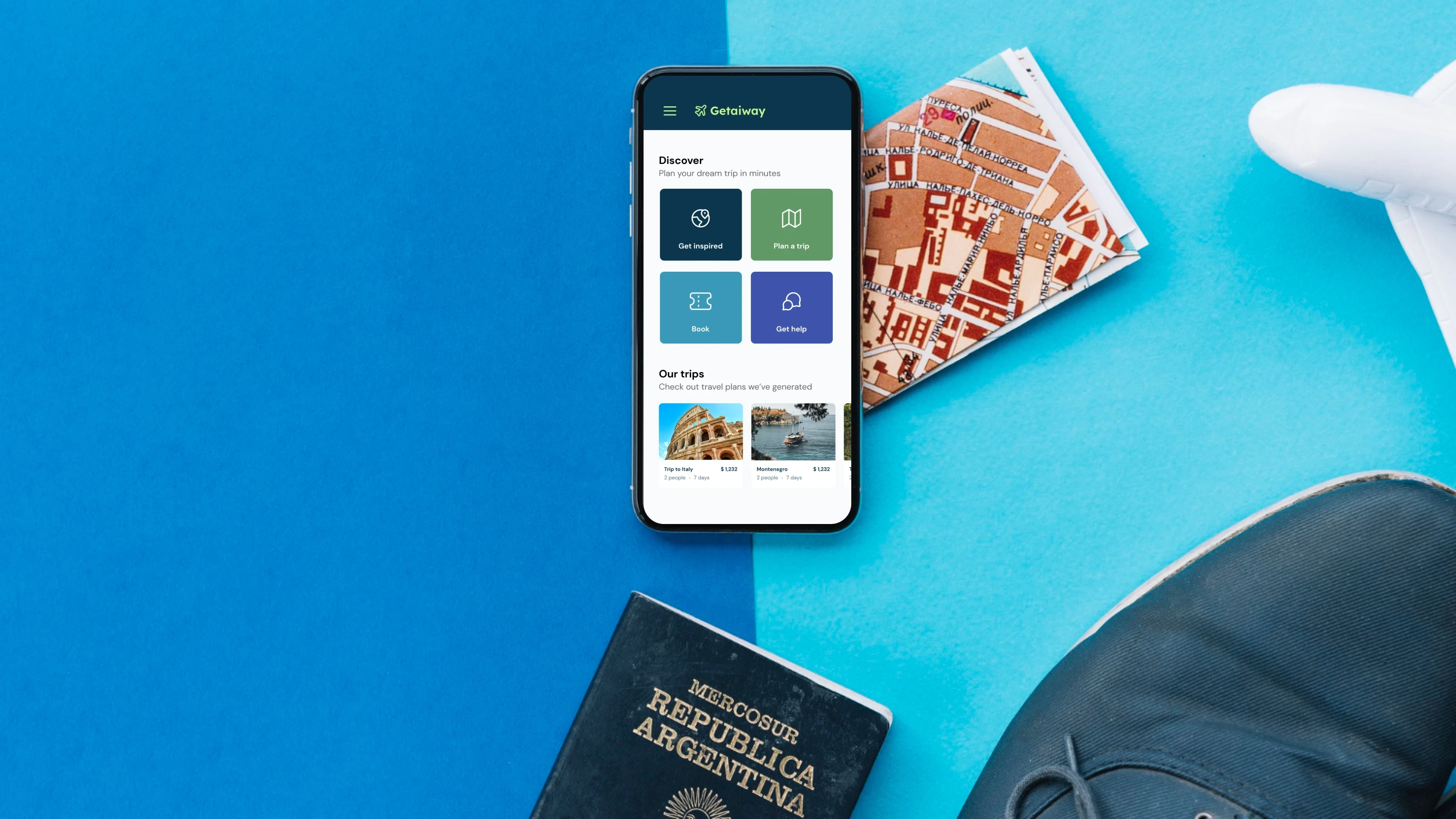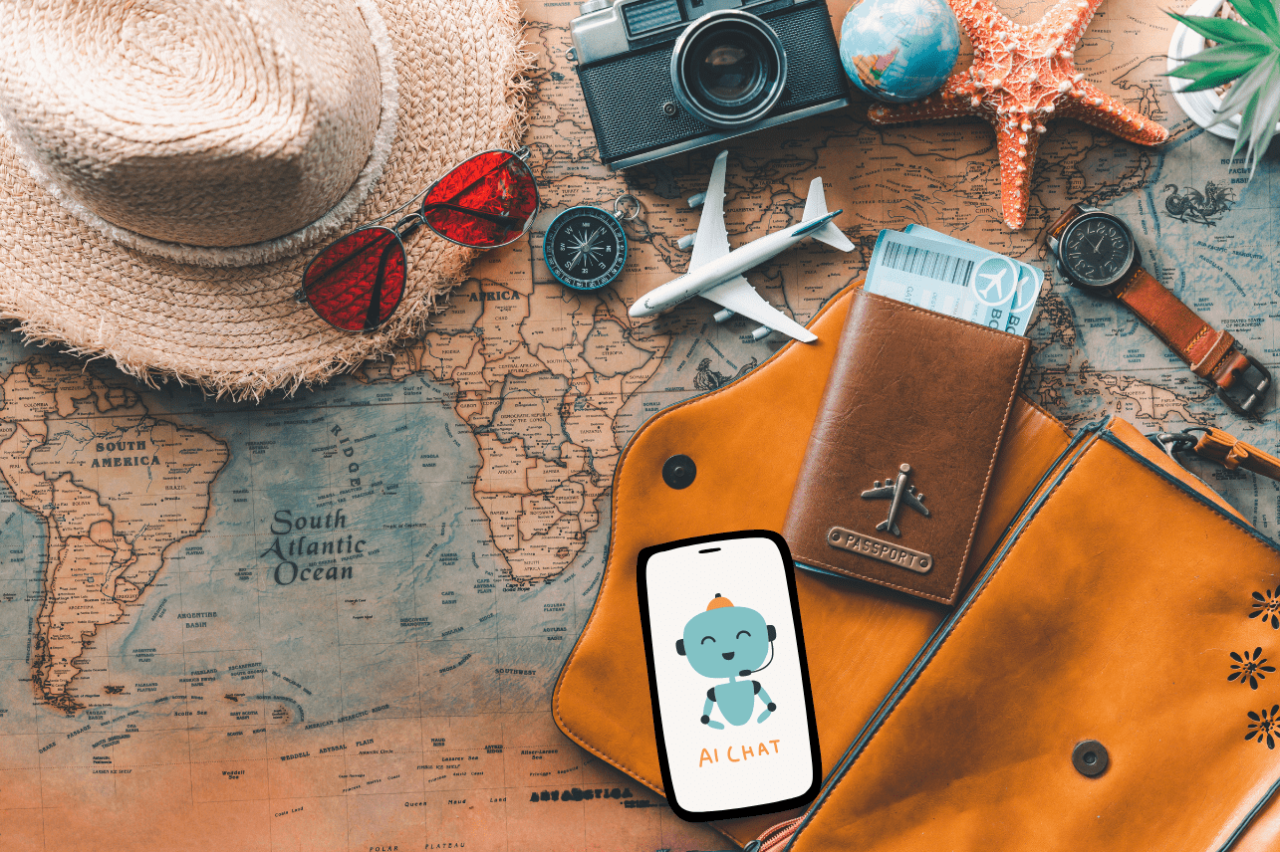In the ever-evolving landscape of global exploration, Artificial Intelligence (AI) is no longer a futuristic concept but a present-day reality, fundamentally transforming travel planning. From the initial spark of an idea to the seamless execution of a journey, AI’s influence is permeating every facet of the travel experience, promising unprecedented efficiency, personalization, and discovery. This comprehensive deep dive will explore how AI is redefining how we dream, plan, book, and even experience our travels, offering insights into its current applications, future potential, and the ethical considerations that accompany this technological revolution. Prepare to embark on a journey where your travel aspirations are understood, anticipated, and fulfilled with remarkable precision.
The Dawn of Intelligent Travel Planning

For decades, travel planning was a labor-intensive process, riddled with endless research, comparison shopping, and the occasional frustration of a missed connection. The advent of the internet brought a semblance of ease, but it was often a deluge of information that still required significant human effort to navigate. Enter AI, a game-changer poised to automate the mundane, predict the unforeseen, and personalize the journey in ways previously unimaginable.
AI’s impact is built on its ability to process vast amounts of data at lightning speed. It can analyze countless flights, hotels, activities, and user preferences, identify patterns, and make informed recommendations that would take a human countless hours to compile. This isn’t just about finding the cheapest flight; it’s about crafting an entire itinerary that aligns perfectly with your desires, budget, and even your unspoken needs.
How AI Is Currently Revolutionizing Travel Planning
The integration of AI into the travel sector is already evident in numerous applications that enhance user experience and streamline operations.
A. Personalized Recommendations:
Gone are the days of generic travel packages. AI algorithms analyze your past travel history, Browse behavior, social media activity, and stated preferences to suggest destinations, accommodations, and activities tailored specifically to you. Imagine an AI knowing you love quaint, historical towns with excellent coffee shops and then curating a perfect European itinerary just for you, without you even having to articulate those specific desires. This level of personalization extends beyond destination; it includes recommended dining, local events, and even shopping experiences that align with your interests. For instance, if you frequently search for sustainable travel options, AI will prioritize eco-friendly hotels and tour operators in its suggestions. This goes beyond simple demographic data; it delves into your nuanced preferences, learning from your interactions and refining its suggestions over time. The goal is to present options that truly resonate with your individual taste, making every trip feel like it was custom-made.
B. Dynamic Pricing and Yield Management:
Airlines and hotels have long used complex algorithms for pricing, but AI takes this to a new level. It can dynamically adjust prices in real-time based on demand, competitor pricing, weather patterns, local events, and even social sentiment. This means better deals for consumers during off-peak times and optimized revenue for travel providers. AI can predict demand fluctuations with remarkable accuracy, allowing businesses to adjust pricing strategies on the fly, maximizing bookings and profits. This also benefits the traveler by potentially offering last-minute deals or alerting them to optimal booking windows based on predicted price drops. Beyond simple supply and demand, AI can factor in micro-trends, such as a sudden surge in interest for a particular destination due to social media buzz, or a dip in bookings because of a local event cancellation. This sophisticated analysis allows for more agile and precise pricing strategies, benefiting both the consumer seeking value and the provider optimizing revenue.
C. Chatbots and Virtual Assistants:
From answering frequently asked questions to assisting with bookings and providing real-time support during your trip, AI-powered chatbots and virtual assistants are becoming indispensable. They offer instant responses 24/7, reducing wait times and improving customer satisfaction. These bots can handle complex queries, manage cancellations, provide updated flight information, and even offer recommendations for nearby attractions, all through natural language processing. Think of them as your personal travel concierge, available anytime, anywhere. Their ability to understand context and intent in natural language makes interactions feel more human-like, enhancing the user experience. Many advanced chatbots can even recognize emotional cues in text, allowing them to escalate particularly frustrated customers to human agents, ensuring a more empathetic response when needed. Their continuous learning capabilities mean they become more efficient and knowledgeable over time, further enhancing service quality.
D. Automated Itinerary Creation:
Instead of manually piecing together flights, hotels, and activities, AI can generate complete, optimized itineraries based on your input (e.g., duration, budget, interests). These itineraries can be adjusted in real-time, adapting to unexpected changes like flight delays or unforeseen closures. AI can also factor in travel times between locations, opening hours of attractions, and even traffic patterns to create a truly seamless schedule. Some platforms allow you to input specific constraints, like avoiding early mornings or ensuring accessibility, and the AI will craft an itinerary around these needs. This goes beyond simple scheduling; AI can cross-reference user reviews, local events calendars, and even weather forecasts to suggest the optimal time of day to visit an attraction or recommend alternative indoor activities if rain is predicted.
E. Fraud Detection and Security:
AI algorithms are highly effective at detecting fraudulent transactions and suspicious activities, enhancing security for both travelers and travel providers. By analyzing vast datasets of transactions, AI can identify patterns indicative of fraud, significantly reducing financial risks. This protects consumers from unauthorized charges and helps travel companies maintain trust and security. AI systems can identify anomalies in booking patterns, unusual payment methods, or suspicious login attempts with far greater speed and accuracy than human analysts, providing a crucial layer of defense against cyber threats and financial crimes in the travel sector.
The Benefits of AI-Powered Travel for the Modern Explorer
The advantages of integrating AI into travel planning are multifaceted, extending beyond mere convenience to offer truly transformative experiences.
A. Unprecedented Personalization:
AI’s ability to understand individual preferences and predict needs leads to travel experiences that feel uniquely crafted for each traveler. This moves beyond basic demographic targeting to truly individual-level customization. It’s about finding that niche museum you’d love, that specific type of cuisine you crave, or that quiet hiking trail that perfectly matches your fitness level and desire for solitude. This bespoke approach ensures that every aspect of the trip resonates with the traveler, creating more memorable and fulfilling journeys.
B. Significant Time Savings:
The hours traditionally spent researching, comparing, and booking can now be dramatically reduced. AI does the heavy lifting, allowing travelers to focus on the excitement of their upcoming trip rather than the logistical complexities. This efficiency is particularly valuable for busy professionals or those planning complex multi-destination journeys. By automating repetitive tasks and sifting through vast amounts of information, AI frees up valuable time for travelers to focus on enjoying the anticipation of their adventure.
C. Cost Optimization:
AI’s dynamic pricing capabilities and its ability to find optimal booking times can lead to significant cost savings for travelers. It can identify hidden deals, recommend alternative routes or dates for better prices, and even alert you to price drops on items you’re tracking. AI’s capacity to analyze market fluctuations and anticipate price movements empowers travelers to make economically smart decisions, maximizing their budget and getting more value for their money.
D. Reduced Stress and Anxiety:
With AI handling much of the planning and providing real-time updates and support, the inherent stresses of travel can be greatly mitigated. Knowing that an intelligent system is looking out for your itinerary and can assist with unforeseen issues provides a sense of calm. This allows travelers to truly relax and enjoy their journey. From pre-trip anxiety about packing lists and visa requirements to in-trip worries about delayed flights, AI can proactively offer solutions or reassurance, significantly easing the traveler’s mental load.
The Future Possibilities of AI in Travel
The current applications of AI in travel are just the tip of the iceberg. The future holds even more revolutionary possibilities that promise to redefine the very essence of how we experience the world.
A. Hyper-Personalized, Predictive Itineraries:
Imagine an AI that not only suggests where you should go but understands your mood, energy levels, and even dietary preferences on a given day to adjust your itinerary in real-time. It could recommend a quiet park stroll if you seem stressed or a lively market if you’re seeking excitement. This moves beyond static planning to dynamic, responsive travel. Such AI could integrate with wearable tech to understand your sleep patterns and physical activity, optimizing daily schedules for peak enjoyment and well-being.
B. Virtual and Augmented Reality Integration:
AI combined with VR/AR will allow travelers to virtually explore destinations before booking, offering immersive previews of hotels, attractions, and even local experiences. Imagine walking through a hotel room or exploring a historical ruin from your living room before committing to a trip. During travel, AR could provide real-time information overlaid on your view, such as historical facts about a building or restaurant reviews. This pre-visualization can reduce decision fatigue and manage expectations, leading to higher satisfaction, while AR can enrich on-site experiences with contextual information.
C. AI-Powered Autonomous Travel:
While still a distant concept, the integration of AI into autonomous vehicles could lead to self-driving cars, trains, or even drones that manage your entire journey from door to door, optimizing routes and stops based on your preferences. This could be particularly transformative for exploring remote or less accessible areas. Picture a future where your luggage is independently transported to your destination, or where self-driving pods offer personalized sightseeing tours, eliminating the need for human drivers and enhancing privacy and flexibility.
D. Proactive Problem Solving:
Beyond just alerting you to disruptions, AI could proactively rebook your flights, arrange alternative transportation, and even secure new accommodation without your direct intervention if a major disruption occurs. This would transform travel mishaps from stressful events into seamless adjustments. Imagine an AI detecting a developing storm, automatically re-routing your connecting flight, and booking you into a new hotel near the revised airport, all before you even realize there’s a problem.
E. Seamless Language Translation:
Real-time, context-aware AI translation devices will break down language barriers, enabling truly immersive cultural exchanges without the need for traditional interpreters or clumsy phrasebooks. This would enhance interactions with locals and deepen understanding of diverse cultures. Advanced AI could even learn local dialects and nuances, ensuring more accurate and respectful communication, bridging gaps that current translation apps might miss.
F. Enhanced Sustainability Tracking:
AI can help travelers track their environmental footprint more effectively, suggesting lower-impact travel options and even nudging them towards more sustainable choices throughout their journey, from food consumption to waste disposal. This can contribute to more responsible and eco-conscious tourism. AI could calculate the carbon emissions of various travel modes, recommend eco-certified accommodations, and even suggest local, sustainable dining options, empowering travelers to make environmentally responsible choices.
G. AI-Driven Customer Service Beyond Chatbots:
Future AI could leverage emotional intelligence to provide truly empathetic and personalized customer service, understanding nuanced frustrations and offering solutions that go beyond scripted responses. This would lead to a significantly improved support experience. Imagine an AI that can detect a traveler’s anxiety in their voice or text and respond with calming assurances and precise solutions, making them feel genuinely understood and supported.
H. Predictive Health and Safety Monitoring:
AI could analyze real-time health advisories, local crime rates, and even personal health data (with user consent) to provide proactive warnings or recommendations. For example, if you have a known allergy, AI could identify restaurants with suitable menus or warn you about specific ingredients in a region. This goes beyond generic travel warnings to offer highly personalized safety and health guidance.
I. Personalized In-Destination Guides:
AI-powered guides on your smartphone could adapt to your pace, interests, and real-time location. Instead of a fixed audio tour, the AI could suggest detours based on something you just looked at, recommend nearby events, or even point out fascinating historical details that aren’t in standard guidebooks. This creates a more dynamic and engaging exploration.
How Travelers Can Embrace AI for Better Journeys

As a traveler, you have the opportunity to leverage AI to enhance your adventures. Here’s how you can make the most of this evolving technology:
A. Experiment with AI-Powered Tools:
Don’t shy away from using travel apps and websites that incorporate AI features. Explore their recommendation engines, utilize their chatbots for quick queries, and see how they can streamline your planning process. Many platforms offer free trials or basic features that allow you to test the waters without commitment.
B. Provide Feedback:
The more you interact with AI systems and provide feedback on their recommendations, the better they become at understanding your preferences. Your input helps refine the algorithms and improve personalization for yourself and others. Think of it as training your personal travel assistant; the more data it has about your likes and dislikes, the more accurately it can serve you.
C. Understand Data Privacy Settings:
Take the time to review the data privacy policies of the travel platforms you use. Understand what information is being collected and how it’s being used. Adjust your privacy settings to your comfort level. Being informed about your data rights allows you to make conscious choices about how your personal information is shared and utilized.
D. Combine AI with Human Insight:
While AI is powerful, it’s often best used in conjunction with human expertise. For complex or highly specialized trips, consider consulting with a human travel agent who can add nuanced understanding and personal touches that AI might miss. Human intuition and empathy can still provide invaluable layers of customization that AI currently cannot replicate.
Conclusion
AI is not just transforming travel planning; it’s ushering in an era of intelligent exploration, where journeys are more personalized, efficient, and deeply rewarding. From the ease of automated itineraries to the joy of discovering hidden gems through smart recommendations, AI empowers travelers like never before. While challenges related to data privacy and ethics must be carefully navigated, the overwhelming potential of AI to enhance our travel experiences is undeniable.
As AI continues to evolve, the future of travel promises to be one of unprecedented personalization and seamless execution, allowing us to focus on the wonder of discovery and the richness of human connection. Embrace this technological revolution, and let AI be your intelligent companion on your next adventure, unlocking a world of possibilities that were once confined to the realm of imagination. The future of travel is not just about where you go, but how intelligently you get there.













